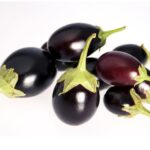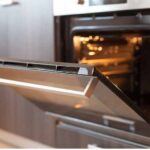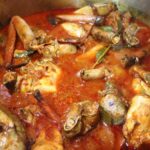Proud son uncovers exploits of ‘unassuming’ private who was captured on three occasions
A son desperate to learn about his late father’s mysterious escapades during World War 2 has discovered that he was a hero.
Pietermaritzburg businessman Nad Pillay, 57, began delving into the past of his father, Private AS “Haps” Pillay, after his death in 1969.
Pillay and his five sisters were always filled with awe and wonder about their father’s army life, but he rarely spoke of his military expeditions.
He described his father as a “quiet, unassuming man”.
To preserve his father’s legacy, Pillay, from Northdale, decided to document his military contribution. He began collecting letters, pictures and postcards after his father’s death, and compiled an album over the past 10 years.
“When I was a boy, I would try to sneak into his drawers and look through all the letters, but he would catch me and tell me to leave them alone.”
While digging into his father’s past, Pillay discovered a side to the man that he never knew.
“He was drafted into the army when he was 22. People saw joining the army as a challenge and an adventure and I think that was why he joined.
“As a boy, I was desperate to know more about his life in the army, but he never spoke about it.”
He believes parts of his father’s past are still missing.
“Now I would love to find the family of the men who served with my dad, so that together we can discover more. Right now there are many gaps and holes.”
Haps served in the Cape Malay Corps. He travelled through North Africa and parts of Europe, including Italy, as a member of the South African Military Transport Unit between 1942 and 1945. He was first captured in Libya in 1942 by German soldiers.
In one of many letters to his father, he wrote: “We were escorted by the German column and surrounded by German tanks. At one time we were in the thick of the fighting, with bombs going off all around us
“We were put to work digging slit trenches. At about eight o’clock in the evening, together with 15 other men, I took over a truck that had been left unguarded and made our escape back to our lines. I must say we took a desperate chance and were glad to be out of German hands.”
On another occasion, he was captured and held in an Italian Prisoner of War camp.
He managed to escape again and was directed into the mountains, where he hid for a year and met a group of rebels opposed to the Italian-German alliance. He joined them in acts of sabotage throughout Italy.
During that time, his family were informed that he was missing, presumed dead. He later made his way through German lines but was again captured.
He was held prisoner until the Allied forces invaded Italy. In one of his letters to his father after his capture, he wrote :
“ I am still alive. I was captured in Tobruk, and now I am a prisoner of the Italians somewhere in Italy and I have some unforgettable moments while being a prisoner.
“I was on a ship which was torpedoed somewhere in the Mediterranean Sea and was in the water for several hours and then was picked up by a cruiser and saved.”
In a letter to his father in 1942, Haps described the challenges he faced as an Indian: “ I must say this army is really unfair to the non-European troops.
“Everywhere the Dutchme n go, they make things out of bounds, and yet we are fighting for the same cause and wear the same uniform.
“But, dad, I must say here in Cairo they can’t stop us, for there is no distinction. We can go to a hotel and sit next to an officer and order a grub to eat. Don’t let anybody get this letter.”
For his bravery, Haps was awarded several medals, including the prestigious Distinguished Service Order, 1939-1945 Star, African Service Medal and the War Medal 1939-1945.
Pillay said he was proud of his father.
“When asked, he used to joke about his days in the army. He used to say he would have bullets for breakfast and bombs for supper. But he had a tough life and saw harsh things.”
Although he was awarded various medals, Haps remained a private until he retired.
Pillay said that while other black soldiers received a bicycle for their service, his father received a car, which he used to start his taxi business in Pietermaritzburg.
Pillay also found out that his father was a hero not only to his country, but also to his community.
When the Group Areas Act was enforced, Boom Street residents in central Pietermaritzburg were not victims of forced removals because of Haps’ military service.
“They learnt about his role in the army, and the whole community was helped in that way. But a few years later the Group Areas Act was enforced once more.
“He also helped people with his taxi business. They hired it from him.
“Looking at my dad’s life, I am pleased and proud of him, and now generations after me will also know a little about how he helped his country.”
By Teneshia Naidoo
Source : Sunday Times Extra












